Infants
Newborns (0-3 months)
Congratulations! You are a new parent. There is much to learn about parenthood, and you probably have many questions. How do I keep my baby healthy? Why are all those vaccines so important?
At birth, infants are protected against certain diseases because antibodies pass through the placenta from mother to unborn child. After birth, breast-fed babies get the continued benefits of additional antibodies in breast milk. But in both cases, the protection is temporary.
This is different from immunization. Immunization (vaccination) is a way of creating longer-lasting immunity to certain diseases. Vaccines do not give your baby the disease — they teach the immune system to respond to a disease. They do this by using an antigen, a name for the killed, weakened, or broken germs that train your baby’s immune system in advance. Basically, the vaccine allows your baby’s immune system to recognize when the real disease comes around.
Immunizing Your Baby
Newborns have no idea what is happening. They may be scared and feel some pain from the shot(s), which will likely cause crying. You may also feel bad seeing your baby in pain. However, remember that the vaccines they receive protect them and the shot will only hurt a little bit.
To Prepare Yourself
- Bring your child’s immunization record to the visit with you.
- Ask the doctor or nurse about the vaccines your baby will be getting. Each one protects against a serious disease.
- Take a look at this video for How Vaccines Help Babies Fight Infections.
- Know what vaccines your child should be getting.
Tips that Help your Baby
- Breastfeeding: If you’re breastfeeding your child, consider nursing while the baby receives their shots or immediately afterward. Breastfeeding is a powerful pain reliever because it combines cuddling, skin-to-skin contact, and sucking – all soothing antidotes.
- Distraction: As soon as the shots are over, soothe your baby by rocking, talking, or singing. Catching your baby’s eye with a fun toy could also help.
It can be more soothing to hold your baby while getting vaccinated. Ask your doctor or nurse if you can use the comforting restraint during the immunization process.
Infants (4-11 months)
As babies grow, some parents feel like they are in their pediatrician’s office every other day. If it’s not a well-baby visit, it’s an ear infection or a cold. During many of these visits, you will have the opportunity to protect your child from many childhood diseases.
Immunizing Your Infant
Although you may feel that the vaccine schedule never seems to end, remember that each vaccine protects your baby from a disease that would be much more painful and longer lasting than a shot.
To Prepare Yourself
- Bring your child’s immunization record to the visit with you.
- Take a look at this video for What to Expect When Your Child is Vaccinated.
- Know what vaccines your child should be getting.
Tips that Help Your Infant
- Favorite Things: Bring along their favorite toy or blanket.
- Calm Parent: Talk reassuringly to your child. Also, make eye contact with, smile at, and cuddle your child leading up to and immediately following the immunizations.
It can be more soothing to hold your baby while getting vaccinated. Ask your doctor or nurse if you can use the comforting restraint during the immunization process.










